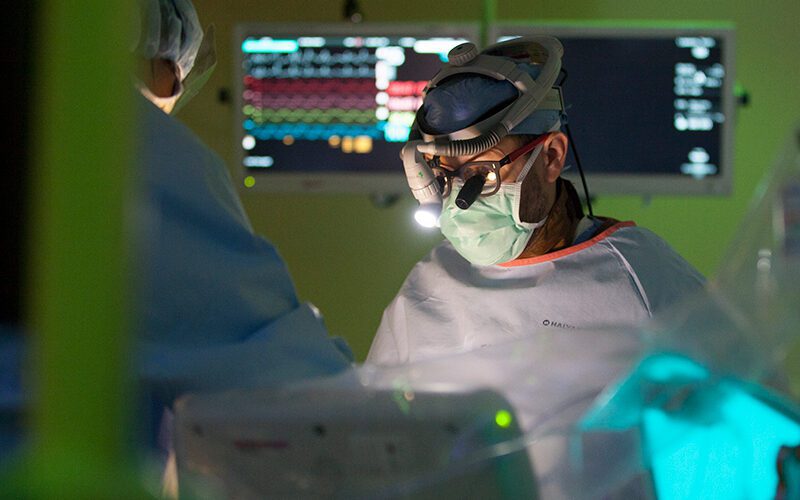Aquaculture expert to share insight at biotech summit
Oct. 4, 2019
This paid piece is sponsored by South Dakota Biotech.
His decades-long biotech career in crop science has brought Phil Kerr to the forefront of one of his industry’s fastest-growing fields: aquaculture.
Kerr, a Missouri native, comes from a family of cotton, soybean and corn farmers and was exposed early in life to farming.
That set the stage for his own career, which includes work in academia and industry, from North Carolina State University to DuPont and now South Dakota — where he serves as chief technical officer for Prairie AquaTech.
Kerr will share his experiences and industry outlook at the Oct. 8 South Dakota Biotech Summit.
“I’ve been fortunate to have worked across a wide array of the agriculture, food and feed industries and have been blessed to have lived through several periods of profound change within the industry,” he said. “Getting the opportunity to share those insights with others is an obligation I take very seriously — and a thrill at the same time.”
We learned more from Kerr about his journey to South Dakota and the potential he sees for his industry here.
What attracted you to Prairie AquaTech?
I have a strong commitment to the development of enabling technologies and their commercialization for the nutritional and wellness benefits of the planet’s populations, both human and animals. All of these are shared values with those of the Prairie AquaTech business. Prairie AquaTech came to me a couple of years ago during my time as a private consultant to help them navigate their challenges to bring their technology platform to full commercialization at a global scale. After a brief phase while I was with Indigo Agriculture, Mark Luecke, Prairie AquaTech’s CEO, offered me the opportunity to join the business and serve as its chief technology officer. It was an easy decision once offered.
What does your role there as chief technical officer involve?
We are in a challenging but exciting phase of the expansion of the business. We are in the final stages of fully commissioning Prairie AquaTech’s first commercial scale production facility in Volga, S.D. We’re establishing our capabilities to manufacture consistent, high-quality ingredients for the global aquaculture industry and the nutritional and feed manufacturing applications that will provide novel solutions for this global industry as it expands to take its rightful place alongside the other land-based production industries in supplying dietary protein in highly efficient and yet environmentally sustainable systems.
My primary responsibilities are to help expand the existing technology platform to further enhance both the means by which these safe, nutritious protein ingredients are made and marketed, as well as their inherent value in use in nutritional applications. In addition, the business will be expanding the focus of its technology platform into other solutions through the incorporation of new plant-based raw materials, the microbial and engineering technologies needed for their transformation and the feed science and food science to enable a new generation of microbially enhanced ingredients.
What potential do you see in Prairie AquaTech to scale its work?
Without sounding overly hyperbolic, the technology platform is virtually without limits. The choices of crop, their raw-material formats, microbes and manufacturing technologies provide a plethora of options for expansion of the existing business, licensing and franchising its business model to others. We’re already seeing opportunities to collaborate with other entrepreneurs that see significant potential in working with Prairie AquaTech to create entirely new added-value business to enable the feed and food industries to serve the needs of consumers around the world.
Your presentation at the upcoming South Dakota Biotech Summit is titled “The Protein Highway: The current state of protein companies.” Can you give us a sense of what you’ll be addressing?
My presentation will have two basic themes: The first will be to set the stage for the unique time we are all in with respect to the growing unmet needs for high-quality, sustainable nutrition solutions facing the planet; the second theme will be to bring context and perspective to the highly diverse and dynamic technological and commercial landscape that is trying hard to meet those needs. Providing the audience with quantitative context to this incredible opportunity and framing its historical, current and future challenges is my principle objective.
How do you think South Dakota is uniquely positioned to grow this industry in the state?
South Dakota’s environment for innovation reminds me in some ways of the entrepreneurial community in St. Louis, my home city. It has strong and deep roots to production agriculture, is highly productive in many parts of the state in major crop production and has a decent record in the development of grain-processing technologies, albeit more for biofuels than for refined feed, food and dietary supplement/pharmaceutical applications. That scope of interest and investment is starting to change.
Are there any challenges you see the industry facing? And how might the biotech industry address them?
Many of these new technologies and the products they enable face considerable complexity in terms of their global regulatory approval. Global harmonization of these regulatory standards is fraught with political and economic pitfalls, which can drastically slow the adoption of sorely needed solutions. The receptivity of new technologies in the food and even the feed industries is also highly complex and is actively opposed by many consumers and governments. Successfully navigating through these issues can be a serious obstacle for many new businesses.
As with most emerging industries, access to highly skilled talent needed to discover, develop and commercialize new products is a challenge. South Dakota must find ways to secure the resources to recruit and retain the talent needed to compete with other centers of innovation in high-quality, sustainable food/feed solutions. The potential to secure the investments needed to create these opportunities is only as good as the talent of your teams. Just look at what’s now happening in the South San Francisco/Bay Area, Boston and even other Midwestern locales like St. Louis and Memphis, and you can see the challenge but also the opportunity.
South Dakota also faces the same issues that many innovation centers in the Midwest do: convenient access to global transportation as many of the emerging opportunities for new technologies are outside of the U.S., and this megatrend shows no sign of slowing down.
For the full agenda and to register for the Oct. 8 South Dakota Biotech Summit, click here.








